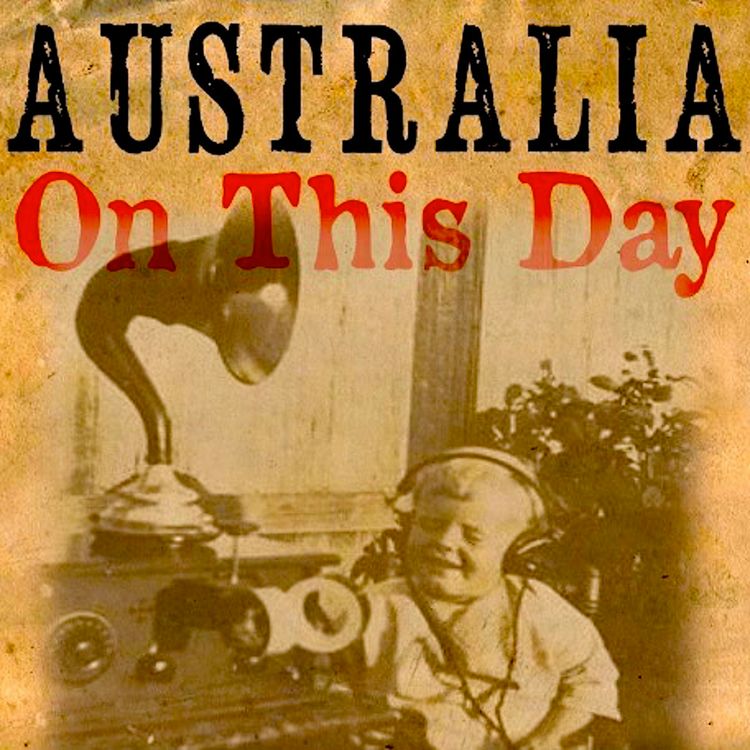Share

Australia On This Day
2 September - 1970 - Raid The Bookstores!
Season 2, Ep. 17
•
On this day 50 years ago, Sydney's vice squad swooped on a clear, present and wholly fictitious danger to society: Alexander Portnoy. He was the protagonist of Philip Roth's raunchy satire Portnoy's Complaint, which had been banned in Australia despite being a critically acclaimed worldwide bestseller.
More episodes
View all episodes

Season 1 Finale - 6 August - 1930 - Mr Eternity Finds God
23:43|REPEAT: On this day in 1930, Arthur Stace — hopeless Sydney alcoholic — converted to Christianity and set himself on the path to becoming Mr Eternity, whose one-word message would eventually reach billions worldwide. Australia On This Day will be on a short break until next week. Thanks for listening.
38. 5 August - 1944 - The Cowra Breakout
17:41||Season 1, Ep. 38REPEAT: At 2am on this day in 1944, the Cowra Breakout began. This episode looks at the man who blew the bugle that gave the signal for the mass escape – and how he wound up behind barbed wire as the first Japanese POW in the first place, courtesy of a Darwin Digger's odd angry shot and the bravery of an Aboriginal man from the Tiwi Islands.
4 August - 1845 - Australia's Titanic
13:32||Season 1REPEAT: 176 years ago today, Australia suffered what is still our worst civil maritime disaster when the emigrant ship Cataraqui struck a reef off King Island and sank in Bass Strait. Of the 409 aboard, just nine were to survive - but fate held a cruel trick in store for two of these men.
36. 3 August - 1912 - The Persecution Of The Eccentric Sexologist
18:37||Season 1, Ep. 36REPEAT: On this day in 1912, William Chidley, radical sexologist and one of Australia’s most eccentric characters, was arrested for being a lunatic – the first use of this power against him in a vendetta that’d eventually make him a martyr to free speech.
35. 2 August - 1986 - The Theft Of The Weeping Woman
21:21||Season 1, Ep. 35REPEAT: On this day in 1986, one of Australia's strangest and funniest crimes was committed when Pablo Picasso's masterpiece The Weeping Woman — valued at $2m — was stolen from the National Gallery of Victoria and held to ransom by a mysterious group calling themselves Australian Cultural Terrorists.
32. 1 August - 1905 - Australia's First Lady At Law
18:15||Season 1, Ep. 32REPEAT: On this day in 1905, Flos Greig became Australia’s first female lawyer — but before she could practice the law she had to change it via an act of parliament.
32. 31 July - 1902 - Henry MacCabe & Our Two Worst Mining Disasters
13:22||Season 1, Ep. 32REPEAT: Australia suffered what is still our worst industrial disaster when an explosion ripped through the Mount Kembla mine on 31 July 1902. Strikingly, lead rescuer Henry MacCabe had 15 years earlier been acclaimed a hero of the 1887 Mount Keira explosion, which was our previous worst industrial catastrophe. Yet Henry's legacy isn't quite black and white.
31. 30 July - 1930 - The Fate Of Australia's Forgotten Aviator
21:52||Season 1, Ep. 31REPEAT: Pioneering Australian pilots Charles Kingsford Smith, Charles Ulm and Bert Hinkler are household names for their aviation feats and tragic fates. Eric Hook is forgotten — not even a Wikipedia entry. But in mid-1930 his England-Australia flight was a front-page story as the world awaited news of what had happened to him in Burma. Hear his story in today's episode.
30. 29 July - 1917 - The Outback Accident That Changed Australian History
14:32||Season 1, Ep. 30REPEAT: On the 24th of May 1917, famous Aussie boxier James Leslie “Les” Darcy died in America. Just over two months later in Western Australia, his namesake, jackaroo James Darcy, would unwittingly become the one to really alter history when he came off a horse in the remote Kimberley and suffered terrible internal injuries. His only hope was surgery — done by a postmaster being instructed by a surgeon 1200 miles way in Perth — via Morse Code telegraph messages. What came later, saved countless lives.